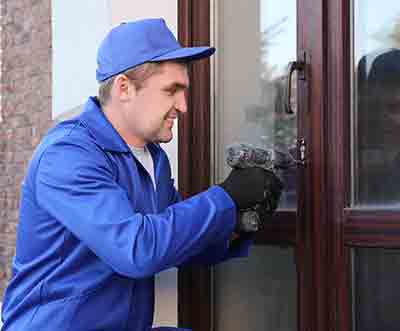A Mobile Locksmith Company
Call Today: (281) 968-4169

Locks are crucial security devices that protect our homes, offices, and valuable possessions. However, they are not impervious to the elements. Weather conditions can significantly affect the functionality and durability of locks. In this article, we explore the various ways in which weather can impact locks and discuss measures to mitigate potential issues.
1. Temperature Fluctuations and Metal Expansion/Contraction
Temperature variations have a notable impact on locks, particularly those made of metal. Metal expands in hot temperatures and contracts in cold temperatures. This natural phenomenon can cause locks to become sticky or loose over time, affecting their ability to open and close smoothly. Severe temperature fluctuations may even lead to warping or misalignment of lock components, rendering them ineffective.
To minimize the impact of temperature changes, lubricating locks with graphite or silicone-based lubricants is recommended. These lubricants provide a protective layer, reducing friction and allowing the lock mechanism to operate smoothly. Additionally, regular maintenance checks and adjustments by a professional locksmith can help identify and address any issues caused by temperature fluctuations.

2. Humidity and Corrosion
High levels of humidity can contribute to the corrosion of lock components, especially in areas close to water bodies or regions with a humid climate. Moisture in the air can cause metal parts to rust, impairing the lock’s functionality and weakening its structure. Corrosion can lead to key sticking, difficulty in turning the lock, or even complete lock failure.
To prevent corrosion, it is crucial to keep locks dry. Applying a rust inhibitor or moisture-repellent spray on the lock mechanism can provide protection against moisture damage. Additionally, choosing locks made from materials resistant to corrosion, such as stainless steel or brass, can extend their lifespan.
3. Rain, Snow, and External Exposure
Locks exposed to rain, snow, or other external elements are at higher risk of damage compared to those shielded from the weather. Water penetration can affect the inner workings of locks, causing them to seize up, rust, or freeze during colder temperatures. Additionally, exposure to direct sunlight over an extended period may cause materials like plastic to deteriorate, compromising the lock’s structural integrity.
4. Extreme Weather Events
Locks face their greatest challenge during extreme weather events, such as hurricanes, floods, or heavy storms. The forceful impact of wind, debris, or water can cause severe damage to locks, rendering them useless or inoperable. In such cases, the best approach is to prioritize personal safety and seek professional assistance to assess and repair the damaged locks once the adverse weather conditions have subsided.
Weather conditions can significantly impact the functionality and durability of locks. Temperature fluctuations can cause sticky or loose locks, while high humidity levels can lead to corrosion. Exposure to rain, snow, and direct sunlight can also damage locks over time. Understanding these weather-related challenges allows us to take preventive measures, such as regular maintenance, lubrication, and installation of protective covers. Choosing weather-resistant materials and seeking professional locksmith services when needed can ensure that locks remain secure and reliable throughout different weather conditions. By protecting our locks, we enhance the overall security of our homes and belongings.